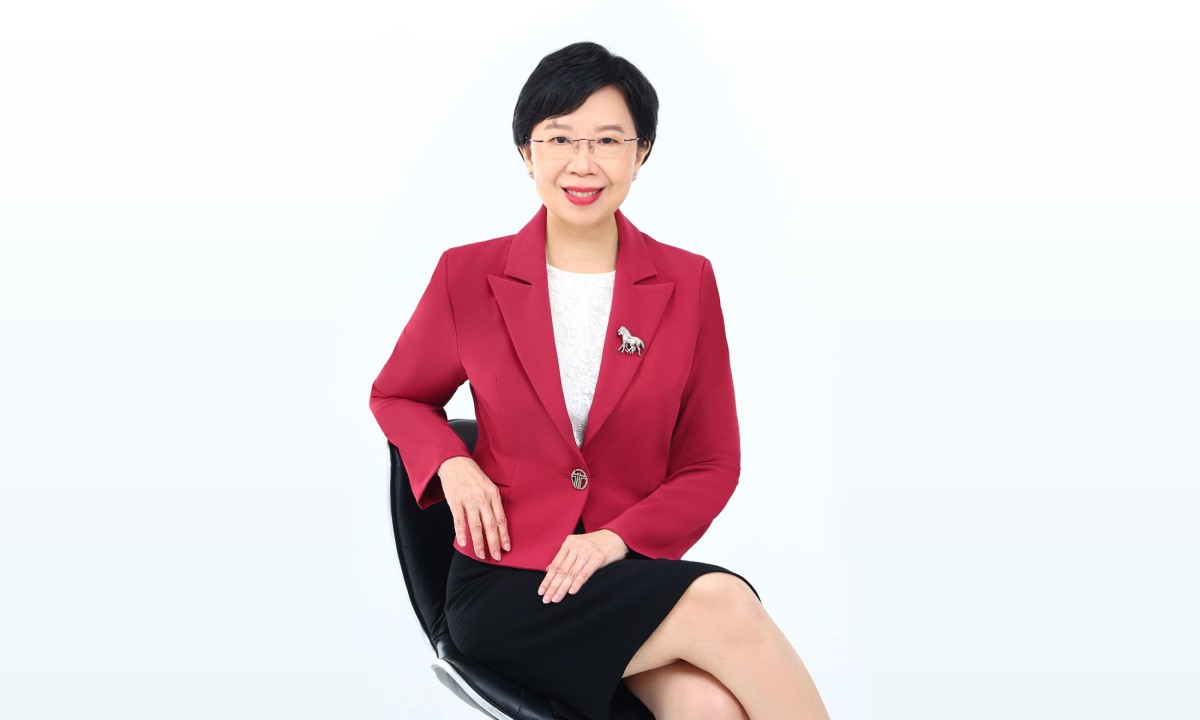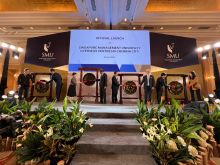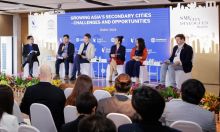Prof Lily Kong awarded the Royal Geographical Society’s Victoria Medal 2024

SMU President Professor Lily Kong has been conferred the Royal Geographical Society Victoria Medal 2024 for conspicuous merit in social and cultural geography and in urban research.
The Society, (with the institute of British Geographers), recognises Prof Kong’s exceptional intellectual leadership demonstrated through her scholarship and contributions to the internationalisation of geography. She is also the first Asian woman in over 120 years to be accorded this honour.
Formed in 1830 for the advancement of geographical science, the Society is a leading professional body for geography and geographers. Since 1902, it has honoured top geographers with a series of prestigious medals and awards that recognise excellence in geographical research and fieldwork, teaching, public engagement, policy, and professional practice.
Prof Kong is among the 25 outstanding individuals and organisations the Society has presented medals and awards to this year. She joins a prestigious list that includes Dame Freya Stark, who studied and wrote many popular books about the Middle East and Turkey; Alfred Russel Wallace, who wrote about natural selection before Darwin popularised it and studied the flora and fauna in Brazil and Southeast Asia; and Captain Robert Falcon Scott, who “raced” against Roald Amundsen to reach the Antarctic pole, lost to him by a month and died on the journey home.
More modern winners include Professor Yadvinder Malhi of Oriel College, Oxford, who is a leading light in the study of environmental change with a focus on tropical forests; Dr Sylvia Earle, an American mission conservationist who launched Mission Blue (2014) and still champions marine conservation efforts; and Sir David Attenborough, the great documentarian and populariser of natural history on television and a trained geologist and naturalist; as well as many other figures of authority in the socio-geographical, biodiversity-related, and geographical-conservation sciences.
Looking back on her journey, and forward to the future
Over the course of her research journey, Prof Kong has studied wide-ranging phenomena such as intercommunal relations, identities, and social cohesion; cultural politics, cultural policies, and cultural industries; creative economies, creative cities, and smart cities; natural and cultural heritages; and more.
She has given much attention to understanding the interconnections that underpin social-cultural transformations in Asia.
Prof Kong credited her education as a geographer in preparing her for the various leadership roles that she has held at SMU. “Geography has enduring relevance in our world. We have a responsibility to use the knowledge and skills of our discipline to make our world a better place,” said Prof Kong, describing geography as a “synthesising” discipline that cultivates integrative skills.
Prof Kong has also recently released the second edition of her book, Singapore Hawker Centres: People, Places, Food (2023). The book offers a detailed, fascinating journey through Singapore's hawker food heritage, as a vital part of Singapore's society and culture.
Among the projects she is currently working on, Prof Kong shares one that is beginning to shape a larger project on food geographies more broadly. She is also collaborating in an ongoing project on smart cities in Southeast Asia, which selects cities involved in the ASEAN Smart Cities Network to understand better the motivations and challenges associated with technology-driven forms of regional integration and consolidation.
When asked about her hopes for the future of academia, Prof Kong says, "I look forward to a time when academia extricates itself from the dangers of purely focusing on academic metrics, superficial rankings, and cut-throat research cultures, to embrace societal impact in the assessment of research, and cultivating supportive and collaborative cultures.”
“As a university leader, I am committed to leading and contributing to such shifts sector wide."
Speaking about the award, Prof Kong said, “I am honoured to have my work in urban, social and cultural geographies recognised, and am encouraged to use our knowledge and skills to influence social and cultural change in our societies.”
See also:


